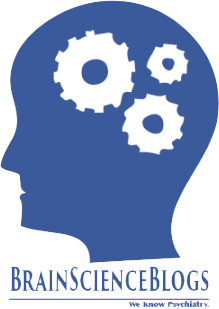Aaron “Tim” Beck, MD, known as the father of cognitive behavioral therapy (CBT), died on Monday in Philadelphia. He was 100.
Beck’s pioneering career in psychoanalysis spanned more than seven decades, yielding more than 600 published articles and nearly two dozen books.
His development of CBT redefined the practice of psychoanalysis, challenging long-held theories about the underpinnings of psychiatric illness and the most effective treatments.
Originally developed to treat patients with depression, CBT is now used for a wide range of mental illnesses, including anxiety, eating disorders, addiction, insomnia, and obsessive-compulsive disorder. The technique has also shown promise in relieving migraine symptoms.
“Dr Beck questioned the basis of psychoanalysis when he proposed that the crucial mental phenomena in depression are not unconscious or mysterious but, rather, they are near the surface and can be examined for their accuracy by the patient, with guidance from a therapist,” Robert J. DeRubeis, PhD, a long-time colleague of Beck’s and professor of psychology at the University of Pennsylvania, told Medscape Medical News.
“The influence of CBT, considering its worldwide reach over the past 40 years, has arguably been greater than any other school of therapy,” he added.
Born July 18, 1921 in Providence, Rhode Island, Beck received a bachelor’s degree from Brown University in 1942 and his medical degree from Yale in 1946. He joined the University of Pennsylvania faculty in 1954.
He received more than 50 awards for his work, including the Heinz Award for the Human Condition in 2001, the Albert Lasker Award for Clinical Medical Research in 2006, and a Special Presidential Commendation from the American Psychiatric Association awarded this May for lifetime achievement in the assessment and treatment of psychopathology.
At his death, Beck was president emeritus of The Beck Institute for Cognitive Behavior Therapy, which he cofounded in 1994, and professor emeritus at the Perelman School of Medicine at the University of Pennsylvania.
“My father was an amazing person who dedicated his life to helping others,” Judith Beck, PhD, cofounder of the Beck Institute, said in a statement. “He has inspired students, clinicians, and researchers for several generations with his passion and his groundbreaking work.”
Pioneering Treatment
Beck first began questioning accepted norms of psychoanalysis early in his career. In the 1950s, experiments he designed to affirm traditionally accepted theories began producing results that challenged the long-held assumption that people with depression felt an innate need to suffer.
His work with patients with depression revealed what Beck termed “automatic thoughts,” underlying negative beliefs associated with feelings of failure and loss. By working with patients to identify those thoughts and counter them with positive reinforcement, patients felt better and were more likely to adopt more positive behaviors.
“In 1960, I finally became disillusioned with the formal psychoanalytic approach of patients lying on the couch and free-associating, I decided to ask the patients to sit up,” Beck wrote. “At that point, we would carry out more of a collaborative conversation.” He called this new technique “cognitive therapy.”
In 1977, Beck put his therapy to the test in the first clinical trial to compare CBT to antidepressants. Behavioral therapy offered significant benefits over pharmacotherapy, with nearly 80% of those receiving CBT reporting fewer depression symptoms versus just 23% of those treated with medication.
Since that publication, more than 2000 studies have been published demonstrating the efficacy of CBT. In the United Kingdom, CBT is used to treat more than 500,000 people a year as the primary therapy used in the Improving Access to Psychological Therapies program through the National Health Service.
Beck spent decades researching cognitive therapy, adapting CBT to treat psychosis, and most recently, serious mental illnesses such as schizophrenia.
Drawing on Beck’s earlier work, recovery-oriented cognitive therapy has been shown to significantly improve symptoms and functioning in patients with schizophrenia. The therapy is especially suited for patients who typically struggle with treatment due to mistrust, chronic institutionalization, limited access to motivation, limited verbalization, or intense symptoms.
“Tim was a brilliant man who made major contributions to our field, advancing an empirical approach to psychotherapy,” Richard F. Summers, MD, clinical professor of psychiatry at the University of Pennsylvania, told Medscape Medical News. “He trained generations of clinicians and researchers who are current leaders in the field.”
“Personally, he had a special warmth, wisdom, and kindness that brought out the best in all of those around him,” Summers added.
Beck is survived by his wife Judge Phyllis Beck; their four children, Roy, Judith, Daniel, and Alice; 10 grandchildren; and 10 great-grandchildren.
FROM: Medscape Medical News




Leave A Comment